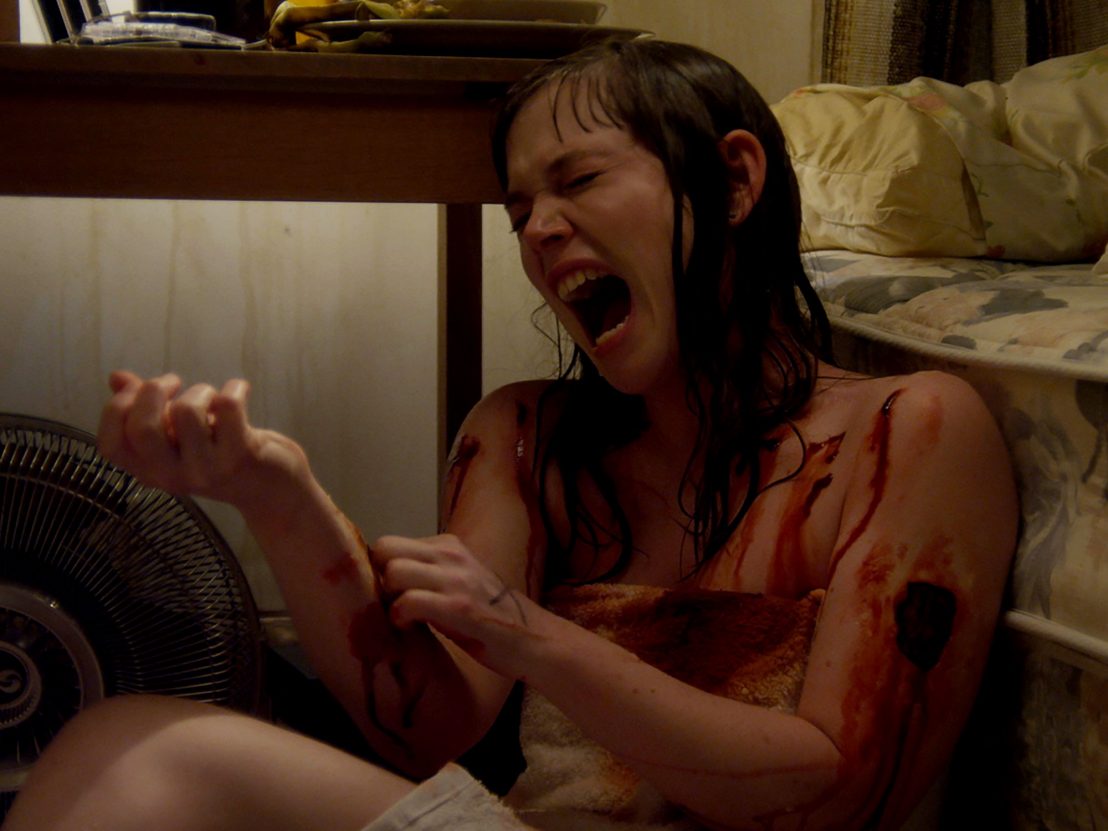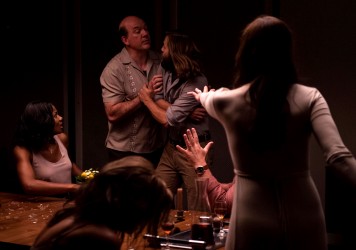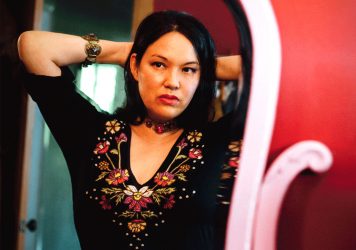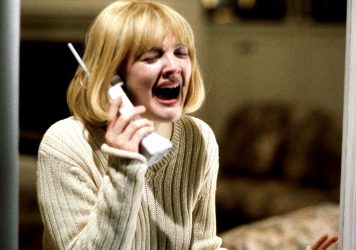
Founded a little over a year ago as “the brainchild of a Saturday morning WhatsApp conversation” between Anna Bogutskaya and Olivia Howe, two self-proclaimed “cinema nerds” who bonded over a shared love of horror cinema, The Final Girls is a London-based film collective exploring the intersection between feminism and horror, highlighting the work of women behind and in front of the camera. In that short period they’ve organised 15 events, screening renowned classics like Carrie and Trouble Every Day alongside off-kilter fare like Office Killer and The Slumber Party Massacre, as well as touring a nationwide preview of Anna Biller’s The Love Witch.
Their objectives are clear, as Anna explains, “We wanted to create a space where we could give horror films the same attention, care, and discussion that is given to other types of films.” Treating each event as a unique object and each attendee as a guest of honour, films are presented with love and attention, the choices carefully contextualised and discussions intelligently directed. “It’s not just about putting on films we love, it’s about playing that film at the right time, in the right way, in the right place, to ensure that we can continue the conversation.” Above all though, inclusivity is a priority, no small gesture within the often insular and intimidating world of genre cinema. “We try to create a welcoming space for everyone, particularly women, and even more particularly women who do have not yet engaged with genre.”
With their latest event, ‘We Are The Weirdos’, The Final Girls have taken the next logical step, making a “move into the contemporary space” by selecting and presenting new work from emerging female filmmakers within the field, and touring those films across the UK. By providing “a supportive platform to some of the talented filmmakers that we are excited about in the genre world,” their intent is to “show that a female take on genre and horror can be varied in both themes and form.” The five shorts from the programme profiled below should serve as an introduction to that aim.
One of the most confidently made films, Jacqueline Castel’s The Puppet Man stacks visual references to John Carpenter over the director’s own music, as well as featuring the man himself in a brief cameo. A short, snappy film about a supernatural killer stalking victims in a seedy dive bar that engages throughout, Castel’s film is creepy, visually arresting and memorable. It’s a slightly odd decision to construct a film entirely out of the style of another director, but Castel, acting as cinematographer as well as director, pulls it off.
Zanin de Paula’s A Mother of Monsters – a short adaptation of the Guy de Maupassant story of the same name about a girl, who, after initial enticement, finds out the terrible truth behind a travelling circus – is a similarly bravura display. Great set design and a careful, considered approach to visual style helps establish a disquieting sense of place and perspective, before everything collapses. A frenetic final sequence, shot and cut creatively, shows the horrible reality behind this constructed world – the darkness behind all of the decoration.
The most challenging, thought-provoking film is surely Natasha Austin-Green’s experimental documentary Dead. Tissue. Love. Sensitively tackling more difficult territory than most would dare, Austin-Green’s film profiles a young girl experiencing burgeoning necrophilic desire. Mixing the girl’s confessional narration (covering her embrace of these transgressive desires and the discovery of a community that understands them) with a collage of abstract, textural imagery, Austin-Green creates a portrait that is uneasy but never judgemental or exploitative.
A film that shares the same sense of queasiness is Suraya Raja’s Don’t Think of a Pink Elephant, which despite it’s striking stop-motion animation style still manages to pack a visceral punch. A regular family story starts to go awry as an anxious teenage girl experiences violent hallucinations, momentary imagined bursts of cringe inducing plasticine violence that prove genuinely hard to stomach. Building tension through suggestion about how these mental machinations might manifest in reality, Raja’s film is smart and artful, an original and precision-engineered animated marvel.
The overall highlight is Amelia Moses’ messy but well-executed Undress Me. Dealing with the after effects of a college girls decision to lose her virginity, Moses mines familiar territory well. Working with textures and surfaces, skin, flesh and all that which lies beneath, the director alludes to more than she shows whilst still managing to show a lot. Readings of the meaning behind the film will vary (the girl’s encounter isn’t abusive, and her bodily affliction is not something transmitted but seemingly already inside of her) as Moses skilfully avoids anything too laboured, right through to the final line: “you did this, fix it.” Sometimes the most satisfying route is the simplest – a slow-build reveal, and lashings of thick, velvety gore.
‘We Are The Weirdos’ is “an effort to promote and spotlight the work of the filmmaker’s we’re intrigued by and passionate about,” but also a “mission statement, of sorts, for women in genre both as makers and spectators,” and hopefully it will be the first of many such ventures. “After this tour, we’d like to be in a position where we can take on, distribute and promote more interesting horror projects, with women centre stage. We want more diversity of perspectives and more adventurous programming.” A noble, global aim, considering their project started so humbly, with one bright idea and two blue ticks on an iPhone.
‘We Are The Weirdos’ begins on 27 October at the Tyneside Cinema in Newcastle, before touring nationwide through to the final event on 2 November at London’s Genesis Cinema. Full details are available at thefinalgirls.co.uk
Published 25 Oct 2017

By Katy Vans
Karyn Kusama and St Vincent’s Annie Clark are among those contributing to an all-female anthology film.

The American filmmaker talks sex, love and everything in between.

The all-female Black Rose Anthology is a necessary catalyst for achieving gender equality in the genre.